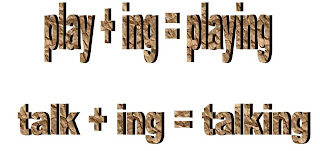After school in the USA there are tons of activities in which boys and girls can participate. There  are sports, clubs, academic competitions, and band. These activities are called extracurricular activities.
are sports, clubs, academic competitions, and band. These activities are called extracurricular activities.
The first category is sports. Children can start participating in sports as early as they would like. They can play these sports in high school: football, golf, tennis, swimming, basketball, baseball, track, volleyball and a few others. Football is by far the most popular sport. But, not all schools offer all of the sports. Some of the poorer and smaller schools don’t have as many sports offered. Then you compete with schools in nearby towns. And if you win enough competitions, you an compete in a state event and win scholarships for college.
There is also cheerleading. It is considered a sport. But, the life of a cheerleader is for a whole other post. 
There are many clubs kids can participate in as well. There is Boy Scouts and Girl Scouts. And cub scouts and brownies for younger kids. In those groups, they learn how to go camping, fishing, tie knots and do a lot of outdoor activities. They earn patches that they can then put on their vests or other clothes. For fundraisers, Boy Scouts sell pop corn and Girl Scouts sell cookies.
There is also a club called 4H. Me and my siblings were in this club when we were younger. They have activities and contests for cooking, sewing, growing vegetables and more. It’s a club for all ages of children.
There are also academic competitions. They have lots of contests for kids from kindergarten until their last year in high school. The youngest students have a competition called story telling. They are told a story and then they have to tell the story back to the judges as best as they can. They have contests like: music memory – where you have to listen to and memorize classical songs, who composed them and their titles. They have spelling and math contests. They also have poetry reading contests, as well as debate contests. You compete for a place on the team in your own school and then you go to competitions with other schools.
 Band is another activity that kids can participate in. Depending on the school, you can start band at different ages, the norm is about 5th grade. You get to choose the instrument you want to play. You can then either buy the instrument or rent one. Practice takes place during 1 period during the school day, but also there are times outside of the school day where the kids will have competitions. You start doing marching band when you are in high school. This is where you learn how to march in the middle of football field during a football game.
Band is another activity that kids can participate in. Depending on the school, you can start band at different ages, the norm is about 5th grade. You get to choose the instrument you want to play. You can then either buy the instrument or rent one. Practice takes place during 1 period during the school day, but also there are times outside of the school day where the kids will have competitions. You start doing marching band when you are in high school. This is where you learn how to march in the middle of football field during a football game.
There are other extracurricular activities as well, but these are the most noteworthy ones.
 St. Patrick’s Day is also called St. Paddy’s Day. It is a day to celebrate the patron saint of Ireland. It’s celebrated on March 17, every year. It’s celebrated in many more countries than only Ireland. It is a very fun day in the United States. Even though it is an Irish Catholic holiday, almost everyone celebrates it these days.
St. Patrick’s Day is also called St. Paddy’s Day. It is a day to celebrate the patron saint of Ireland. It’s celebrated on March 17, every year. It’s celebrated in many more countries than only Ireland. It is a very fun day in the United States. Even though it is an Irish Catholic holiday, almost everyone celebrates it these days.







 Try making these verbs into their ‘
Try making these verbs into their ‘